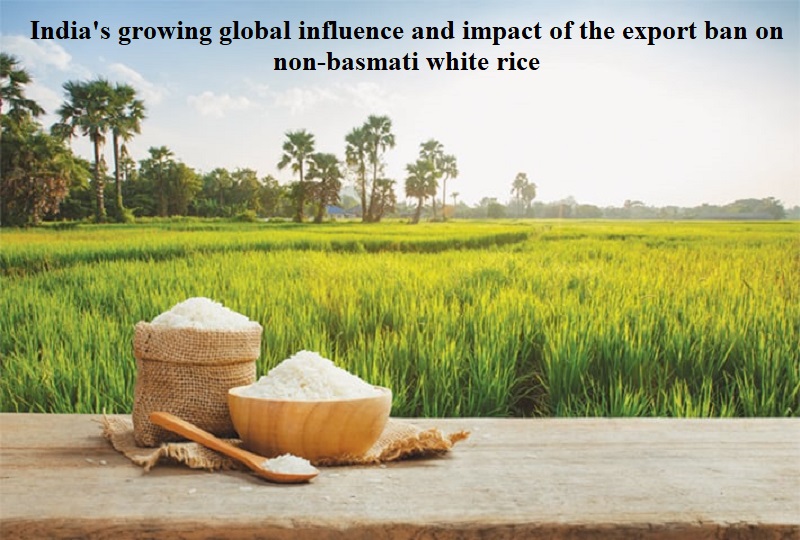
India’s rise as a global power has been marked by its economic strength, strategic importance, and assertive diplomacy. Being the world’s largest rice exporter, India holds significant influence over international food markets. However, the recent ban on non-basmati white rice exports has led to unforeseen consequences, affecting millions worldwide.
As India’s economy booms and international trade expands, its role in shaping global economic dynamics becomes more prominent. Accounting for over 40% of the global rice trade, India’s actions now have a major impact on food security and prices worldwide.
On July 20, India imposed an export ban on non-basmati white rice to stabilize domestic food prices and ensure sufficient rice supply at reasonable costs for its citizens. While this move aims to stabilize the internal economy, it has sent shockwaves through Asian and African nations, particularly those heavily dependent on Indian rice imports.
Countries like Malaysia and Singapore are particularly vulnerable to the ban’s impact due to their reliance on Indian rice imports. Singapore, already dependent on food imports, faces additional challenges during these uncertain times.
The repercussions extend beyond Asia. Africa and the Middle East are also exposed to the consequences of India’s export restrictions. Nations like Djibouti, Liberia, Qatar, Gambia, and Kuwait are among the most affected, with disruptions in rice supply threatening food security.
India’s export ban highlights its growing significance in shaping the global economy. As prices soar and the threat of El Nino looms over major Asian rice producers, the world closely watches the response of major rice exporters like Vietnam and Cambodia and significant importers like Indonesia and Malaysia.
Experts warn that the ban’s impact will be felt by millions, especially poorer consumers in neighboring countries like Bangladesh and Nepal. The ban, expected to continue until India’s general elections in April next year, underscores India’s newfound weight in global affairs.
As India grapples with high inflation, soaring food prices, and potential crop output strains, its actions have far-reaching implications, affecting other grains like wheat. The global community awaits how the situation unfolds and how it may influence the overall trajectory of the world economy.

Post Your Comments